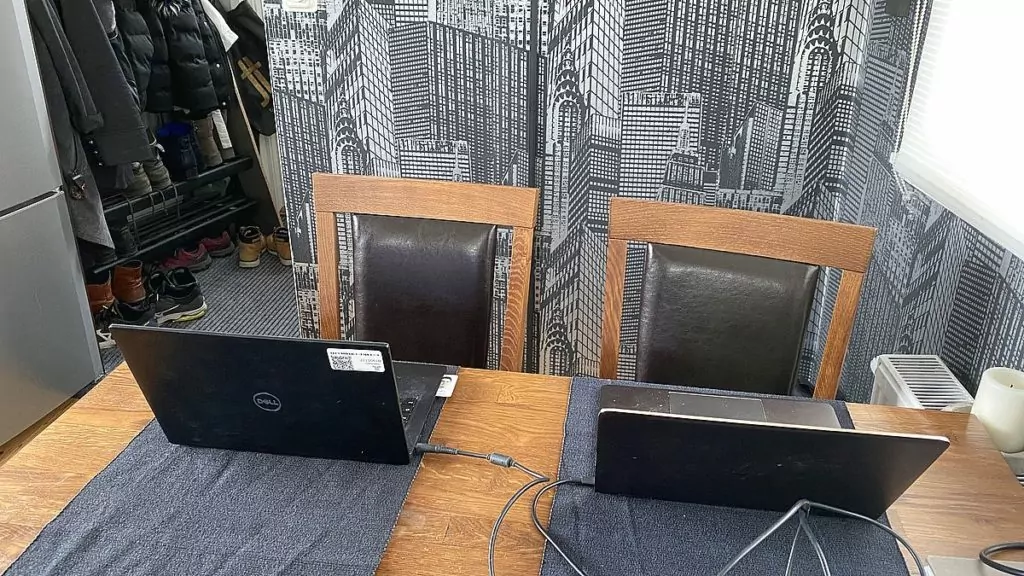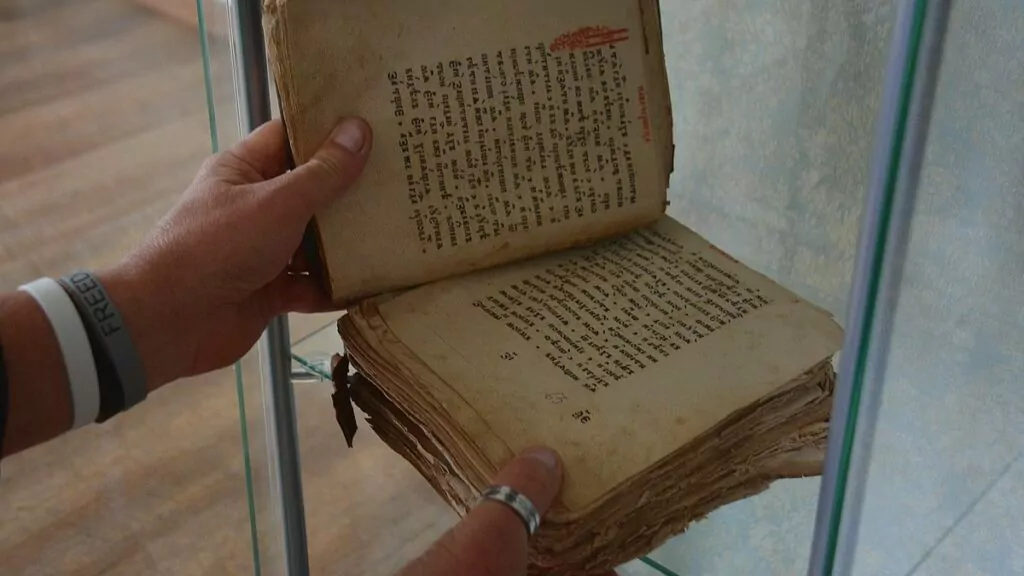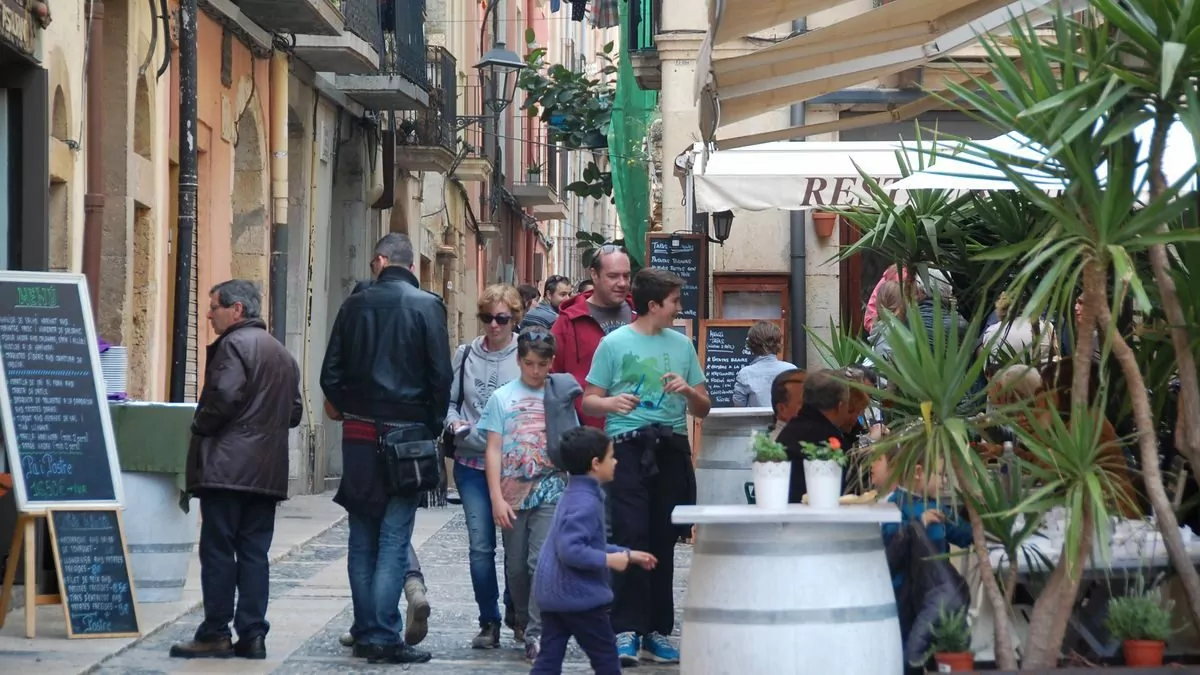Latin in everyday life, sounds boring? On the contrary, you already know more Latin than you realise! Both Swedish and other European languages are dripping with Latin and if you learn a few syllables and expressions, you can suddenly understand a lot... in a lot of languages!
Table of contents
Latin in everyday life
I (Helena) am interested in languages and I have studied quite a few languages (English, French, Spanish, Russian, Icelandic and Danish) but I don't speak many. My favourite subject in high school was neither French nor Spanish ... but "general language skills". I think others thought it was a rather dry subject. For me it was the key to all.
We learnt a number of prefixes and suffixes and then all the languages in Europe became a fun puzzle. Take a prefix, a middle part and a suffix. Create and re-create! Suddenly I saw how Latin was everywhere, and everything became so single. Perhaps it's the same for you, but if not, I'd like to share some tricks for understanding complicated Swedish (I can almost promise a lot of correct answers on the language section of the university exam) and words in other languages.

25 prefixes to help you understand complicated Swedish and European languages.
Here are 25 prefixes that you will come across again and again. They pretty much always mean the same thing, whether it's in highfalutin Swedish, English, French or any other language. Very handy whether you're doing crosswords at home or trying to understand something while travelling abroad!
1. Ab - off/off
- Abdicate (resign from office)
- Abrubt (cancelled suddenly)
- Abstinence (abstinence)

2. Ad/that - to
- Addera (add)
- Adapt (adjust to)
- Attract (attract)
- Adjective (added to the noun)
3. Con/com - together/with
- Consensus (agreement)
- Combining (putting together)
- Compress (squeeze)
4. Contra - word
- Contrast (opposition)
- Controversy (contradiction)
- Counter-revolutionary (against the revolution)

5. The - down/out
- Define (delineate)
- Depressed (low mood)
- Deport (remove)
- Demoralise (take away morale)
- Destruction (remove/destroy the structure)
6. Dis/of - Take apart
- Discriminate (ice wedge)
- Dissect (decompose)
- Disorientated (remove orientation)

7. Ex - out
- Export (exit)
- Expressive (expressive)
- Expand (enlarge)
- Exit (exit)
8. Extra - in addition to
- Extraordinary (out of the ordinary)
- Extravagant (lavish)
- Extraterrestrial (alien)

9. In/im - in
- Include (include)
- Immigration (immigration)
- Impression (impression)
- Inhale (inandas)
10. In/im - not
- Inconsistent (not consistent)
- Immune (not susceptible to infection)
- Unpopular (not popular)

11. Inter - between
- Interval (between notes)
- International (between countries)
- Internet (between networks)
12. Intra/intro - within
- Intravenous (within a vein)
- Introverted (introverted)
- Intranet (within the network)
- Introduce (guide in something)

13. Ob/opp - word
- Obstruction (resistance)
- Oppose (contradict).
14. Per - through
- Perforating (drilling through)
- Perspective (review)
- Perfect (elaborate)

15. Mail - after
- Postdate (provide a later date)
- Post-glacial (after the ice age)
- Postdoc (post-doctoral research position)
- Post-colonialism (after colonialism)
- Postmodernism (developments after modernism)

16. Pre - before
- Prepare (prepare)
- Prefix (first name)
- Predestined (predetermined)
- Contraception (preventing pregnancy)
17. Pro - forward
- Progressive (forward-looking)
- Propeller (drives forward)
- Prominent (distinguished)
- Pro-American (for Americans)

18. Re - again
- Repeat (do again/repeat)
- Return (return journey)
- Retreat (go back/return)
- Revise (revisit)
19. Retro - back/backwards
- Retro (retrospective fashion)
- Retroactive (backdated)
- Retrospective (looking back)

20. See - apart, away
- Selection - selection, choosing
- Segregation - distinguishing a group
- Separate - take apart, separate
21. Semi - half
- Semi-final - semi-final
- Semicolon - as a "half" colon
22. Sub - under
- Subsidy (grant)
- Subtract (remove/minus)
- Submarine (submarine/underwater boat)

23. Super - over/giant (reinforcing)
- Super fine (very fine)
- Superlative (exuberant expression)
- Superpowers (major powers)
24. Trans - over (to the other side)
- Transport (transferring/moving)
- Transaction (transfer)
- Trans-Siberian railway (railway across Siberia)
- Transsexual (transitioning from one gender to another)
- Transistor (transferring sound)

25. Ultra - in addition to
- Ultrasound (frequency higher than the upper limit of human hearing)
- Ultraviolet (invisible light beyond violet)
- Ultrarapid (incredibly fast)
More tips on prefixes and Latin in everyday life?
Do you like languages? Perhaps you have more tips on prefixes and Latin in everyday life? Or do you have any other interesting thoughts about language?
















Solan says:
⭐⭐⭐⭐⭐ What an excellent language key! Thank you very much!
13 February 2021 - 8:53
Helena says:
Glad you liked Solan! 🙂
14 February 2021 - 7:38
Ditte says:
What a nice post! I am very amused by language and it is the key to many things. I studied Latin in high school and it gave a lot even if it is a language you do not speak directly. But the understanding of the language increased and also the ability to derive words as in this post. To keep a foreign language, it is important to have and keep it alive. Not so easy if you are not surrounded by and hear the language daily. I try to read books not only in English, but also in German and a little in French. I have a language programme called Babbel that I subscribe to for a year at a time, and there I can also work with the languages I want to keep alive. It has worked well for me. (Here I have focussed on Spanish and Mandarin).
13 February 2021 - 9:18
Helena says:
I'm glad it was appreciated! Knowing Latin certainly helps a lot, even if it's not a language you speak. Glad you studied Latin! I also agree that you need to maintain languages. I've forgotten a lot about most of the languages I've studied, unfortunately, because I don't practise. We have tried Babbel on occasion, fun and good!
14 February 2021 - 7:41
TravelAnna says:
Great idea to make this compilation!
Yes, it's amazing how Latin is the key to many languages and words. My Latin studies in high school made it much easier to prepare for university...
You already know that I'm interested in languages, hehe. 🙂
13 February 2021 - 10:58
Helena says:
Yes, I know that you are interested in languages! 🙂 Languages are fun and knowing languages helps you a lot when travelling, even if you only know a little 🙂.
14 February 2021 - 7:43
Lena+in+Wales+and+Spain says:
How nice that you also studied general language skills. I also have that as a humanist.
I really liked this topic and have benefited a lot from it when learning other languages, especially the Latin languages.
Nice that you brought up this topic, funny and educational.
Good weekend!
13 February 2021 - 14:05
Helena says:
What fun that you also studied general language skills! Yes, I also studied humanities 🙂 Wishing you a nice weekend!!!
14 February 2021 - 7:44
BP says:
What a fun and interesting collection:-) Never thought of the prefixes and suffixes in that way, i.e. that they have a Latin origin. You are really good at coming up with funny posts.
By the way, good job studying Russian. I did it for two "adult lessons" but gave up immediately...
13 February 2021 - 20:55
Helena says:
Glad you liked it, this is one of those posts that arose from "walking talk" 😉 We (Peter and I) studied Russian before travelling on the Trans-Siberian Railway and travelling in Ukraine. Agree that it was very difficult, and I don't know much today. BUT I know the letters and a number of words and phrases, and that does help somewhat. Knowing the letters helps a lot when e.g. travelling on the metro or reading signs and actually being able to see which station you are at 😉.
14 February 2021 - 7:47
Lena - good for the soul says:
Another extra fun post. I feel exactly the same way. I studied to be a medical secretary once in Hedenhös time. The programme included Latin and Greek, of course. I have had a lot of use of that. Those languages (even if it was mostly diseases and body parts) together with English and the little German in secondary school means that I actually understand both French and Spanish to some extent. I can usually figure out what they are talking about. Feels kind of fun actually.
Hug Lena
14 February 2021 - 14:10
Helena says:
What fun! Yes, medical secretary, I understand exactly! I have also learnt some Latin from the medical world!
17 February 2021 - 6:33
Maria's Memoirs says:
So wonderful with a little language nerdiness! 🙂 I myself am fascinated by the fact that the more languages you learn the basics of, the more languages you get as they are related to each other and have words and expressions that are roughly the same or recognised. For example, Dutch does not feel hopeless to read if you know German. And I usually try to recognise as many Romanian words as possible that I also know in Italian 🙂.
16 February 2021 - 1:03
Helena says:
Of course it is! I usually also try to think like you, then you have the chance to understand a lot!
17 February 2021 - 6:34
Maria/Magnolia Magis says:
Wow, this was fun and interesting! I will save it!
18 February 2021 - 7:49
Christina says:
Thank you very much! So interesting and funny and so many words that are connected. 👏🏻
18 February 2021 - 7:52
DF says:
Thank you for your help. Could you write a similar compilation for Greek? There are at least as many influences from that direction!
09 October 2022 - 19:34